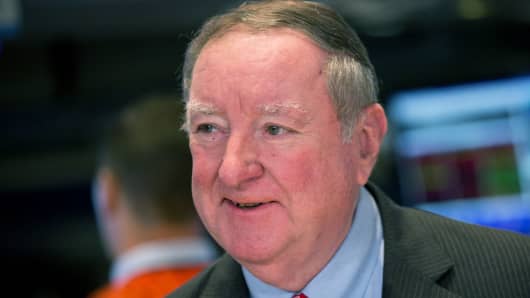Nobody ever sat at some polished conference table in a gleaming skyscraper in New York City and said "it sure would be fun to collapse the world economy." Nobody ever said "I want to see eight million Americans lose their jobs." Nobody ever said "the world would be a better place if six million families lost their homes."
Still, it all happened during the Global Financial Crisis of 2007/9.
The movie version of Michael Lewis' book The Big Short has been released and is required viewing for anybody with any curiosity about how the crisis happened. Fortunately, there is some comic relief in this mostly dark movie, when various celebrities face the camera to explain technical terms, such as celebrity chef Anthony Bourdain explaining a CDO or collateralized debt offering. This movie is actually a good learning vehicle. See it!
Unfortunately, the movie doesn't beg the question of who gets the blame. Was it the unscrupulous bond salesmen who sold those worthless mortgage-backed securities to pension funds across America and then retired young and rich? Was it the fault of mortgage-brokers who made mortgage loans to undeserving borrowers with no income verification? Was it the fault of borrowers who took out loans they could not understand nor handle? Was it the credit-rating agencies who got paid big fees for giving triple-A ratings to bonds secured only by garbage subprime mortgages? Was it the fault of CEOs who allowed their companies to sell products they didn't understand themselves? Was it the fault of Federal regulators, the SEC, the FDIC, the Comptroller of the Currency, the Department of Treasury or even the many state regulators?
In true Libertarian fashion, they were each pursuing their own economic self-interest? They were simply working their own incentive plan. What is wrong with that? Virtually nobody has been convicted of any crime. After all, how could a CEO see something wrong, when Alan Greenspan and Ben Bernanke could see nothing wrong?
Exodus 20:5 tells us that God will punish children for the sins of their father. Karl Marx refined this by saying the sins of management are visited upon the worker. The global financial crisis proved that the sins of capitalism are visited upon the taxpayers.
Still, it all happened during the Global Financial Crisis of 2007/9.
The movie version of Michael Lewis' book The Big Short has been released and is required viewing for anybody with any curiosity about how the crisis happened. Fortunately, there is some comic relief in this mostly dark movie, when various celebrities face the camera to explain technical terms, such as celebrity chef Anthony Bourdain explaining a CDO or collateralized debt offering. This movie is actually a good learning vehicle. See it!
Unfortunately, the movie doesn't beg the question of who gets the blame. Was it the unscrupulous bond salesmen who sold those worthless mortgage-backed securities to pension funds across America and then retired young and rich? Was it the fault of mortgage-brokers who made mortgage loans to undeserving borrowers with no income verification? Was it the fault of borrowers who took out loans they could not understand nor handle? Was it the credit-rating agencies who got paid big fees for giving triple-A ratings to bonds secured only by garbage subprime mortgages? Was it the fault of CEOs who allowed their companies to sell products they didn't understand themselves? Was it the fault of Federal regulators, the SEC, the FDIC, the Comptroller of the Currency, the Department of Treasury or even the many state regulators?
In true Libertarian fashion, they were each pursuing their own economic self-interest? They were simply working their own incentive plan. What is wrong with that? Virtually nobody has been convicted of any crime. After all, how could a CEO see something wrong, when Alan Greenspan and Ben Bernanke could see nothing wrong?
Exodus 20:5 tells us that God will punish children for the sins of their father. Karl Marx refined this by saying the sins of management are visited upon the worker. The global financial crisis proved that the sins of capitalism are visited upon the taxpayers.

